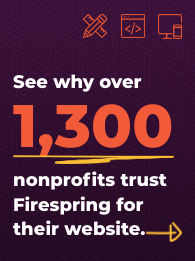Navigating Challenges and Seizing Opportunities
[TLDR: Election seasons pose unique challenges for nonprofits, including competition for attention and donations amid political saturation. To stay relevant, nonprofits should maintain strong donor engagement, emphasize their mission’s impact, and adapt their communication strategies to rise above the election-related noise. Consider appeals such as direct mail.]
Election season brings about strong feelings. Those feelings are complex and varied, a mix of excitement and dread, despair and optimism. It is also a whirlwind of activity, excitement, and sometimes, uncertainty.For nonprofit organizations, these periods present unique challenges that require careful navigation. While nonprofits are deeply embedded in the fabric of society, their mission-driven work must continue, often against the backdrop of heightened political happenings. Striking a balance between staying relevant and adhering to ethical and legal requirements is crucial, especially when the stakes are high.
Election Season Challenges for Nonprofits
During election cycles, nonprofits face a series of obstacles that can complicate their operations:
- Attention diversion: With elections dominating media coverage, nonprofit causes often struggle to maintain visibility. The public’s focus shifts to candidates, campaigns and the myriad of issues at play, leaving little room for other narratives.
- Fundraising competition: Political campaigns intensify their fundraising efforts, directly competing with nonprofits for donor dollars. Standing out becomes even more critical in an environment where attention and resources are scarce.
- Message saturation: As election-related content floods mailboxes and inboxes, nonprofit messaging risks getting lost in the noise. The sheer volume of political communication can make it harder for nonprofits to cut through and reach their audiences.
- Supporter fatigue: The constant barrage of election coverage can overwhelm and disengage even the most dedicated supporters. Nonprofits must find ways to keep their supporters energized and connected despite the surrounding chaos.
Strategies for Nonprofits to Rise Above the Noise
To navigate these challenges, nonprofits can implement several key strategies:
-
- Maintain donor communication: It’s essential to stay engaged with your donors, even during the height of election season. Highlight how your cause aligns with their passions and interests, offering them an outlet to make a difference outside the political realm.
- Empower your donors: In a time when many may feel disillusioned by the political process, remind donors that their support for your organization offers a tangible way to effect change. By contributing to your cause, they can reclaim a sense of agency and impact.
- Focus on organizational impact: Reinforce the real-world consequences of your work. Use this time to remind your audience of the community benefits that could be at risk if support wanes. The goal is to keep the importance of your mission front and center.
- Strengthen your case for support: Ensure your messaging is clear, concise and compelling. Articulate your mission and impact in a way that resonates with potential donors, making it easy for them to see the value in contributing to your cause.
- Embrace the power of storytelling: Personal narratives have a unique ability to cut through the political noise. Share stories that highlight the direct impact of your work on individuals and communities. These stories engage donors and create emotional connections that inspire action.
- Plan ahead for social media changes: Be aware of changes to social media platforms during election seasons. For example, Meta (Facebook & Instagram) will impose an advertising blackout from October 27 to November 5, 2024, which will affect ads related to social issues, elections or politics. Additionally, organic posts may face increased scrutiny, so adjust your strategies accordingly (Facebook Business Help Center, 2024).
- Diversify communication channels: Explore alternative ways to reach your supporters that might be less saturated with political content. Consider leveraging direct mail, phone calls or in-person events to maintain engagement.
- Educate on the voting process: Offering nonpartisan information about voting can position your organization as a trusted resource. Share details about registration, polling locations and voting procedures to help your community stay informed and engaged.
The Importance of Preparedness
A recent report highlighted by Forbes indicates that while many nonprofits are aware of the upcoming challenges, a significant number feel unprepared for the potential impacts of the 2024 election (Gringlas, 2024). This underscores the critical need for strategic planning and adaptability. Nonprofits anticipating and proactively addressing these challenges will be better positioned to weather the election season and continue making a difference in their communities.
By adopting these strategies, nonprofit organizations can navigate the complexities of election seasons and turn these challenges into opportunities. The key lies in maintaining clear and consistent communication, emphasizing the importance of your work and providing your supporters with meaningful ways to stay involved, even amid the political frenzy.


